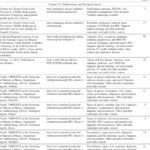Master The Shake: 3 Safety Tips For Earthquake Survival
3 Safety Tips for Earthquake – Stay Prepared and Protected
Introduction
Earthquakes are natural disasters that can strike without warning, causing widespread destruction and loss of life. It is essential to be well-prepared and knowledgeable about safety measures to minimize the impact of an earthquake. In this article, I will share three crucial safety tips for earthquake situations. These tips will help you stay safe, protect your loved ones, and effectively respond to an earthquake emergency.
What are Earthquakes?
Earthquakes are the result of sudden energy release in the Earth’s crust, causing seismic waves. These waves create shaking and trembling of the ground, which can range from mild to severe. Earthquakes occur due to tectonic plate movements, volcanic activity, or human-induced causes such as mining or reservoir-induced seismicity.
2 Picture Gallery: Master The Shake: 3 Safety Tips For Earthquake Survival
Who is at Risk?
Earthquakes can occur in any part of the world, but regions situated along tectonic plate boundaries are at a higher risk. Areas near the Pacific Ring of Fire, including countries like Japan, Indonesia, and Chile, experience frequent earthquakes. However, no location is entirely safe from earthquakes, as they can strike unexpectedly even in regions with low historical earthquake activity.
When do Earthquakes Happen?

Image Source: amazonaws.com
Earthquakes can happen at any time, day or night. They do not adhere to a specific schedule, making it crucial to always be prepared. However, some regions may have higher earthquake occurrence during certain seasons or times of the year. Regular monitoring and reporting by seismological agencies help in providing early warnings and timely information to the public.
Where do Earthquakes Occur?
Earthquakes can occur anywhere on Earth, but they are more likely to happen along tectonic plate boundaries. The Pacific Ring of Fire, which encircles the Pacific Ocean, is the most seismically active region, accounting for about 90% of the world’s earthquakes. Other significant earthquake-prone regions include the Mediterranean, the Himalayas, and the Western coast of the United States.
Why is Preparedness Important?
Being prepared for an earthquake is crucial because it allows you to respond quickly and effectively when the ground begins to shake. Preparedness reduces panic, saves lives, and minimizes property damage. By implementing safety measures, you can significantly increase your chances of survival and protect yourself and your loved ones during an earthquake.
How to Stay Safe during an Earthquake?

Image Source: amazonaws.com
1. Drop, Cover, and Hold On: When an earthquake strikes, remember to drop to the ground, take cover under a sturdy piece of furniture, and hold on until the shaking stops. This position will protect you from falling objects and provide a safe space during the tremors.
2. Create a Safety Plan: Develop an emergency plan with your family or household members. Identify safe spots in each room of your home, designate a meeting place outside, and establish a communication plan. Practice regular earthquake drills to ensure everyone knows what to do during an earthquake.
3. Secure Your Space: Take measures to secure heavy furniture, appliances, and other objects that could topple or cause injury during an earthquake. Use brackets, straps, or anchors to secure items to the walls or floor. Store heavy objects on lower shelves, and avoid hanging heavy pictures or mirrors above beds or seating areas.
FAQ: Frequently Asked Questions
Q: How long do earthquakes last?
Earthquakes typically last for a few seconds to a couple of minutes. However, the duration can vary depending on the magnitude and depth of the earthquake.
Q: Should I evacuate during an earthquake?
Evacuation is generally not recommended during an earthquake unless there is an immediate threat of a tsunami or building collapse. It is safer to stay indoors, take cover, and wait for the shaking to subside.
Q: Can animals predict earthquakes?
There is some anecdotal evidence of animals exhibiting unusual behavior before an earthquake. While animals may sense seismic activity before humans, they cannot predict earthquakes with certainty.
Conclusion
In conclusion, earthquakes are natural disasters that require adequate preparation and knowledge to ensure safety. By following the three safety tips for earthquakes – drop, cover, and hold on, creating a safety plan, and securing your space – you can significantly increase your chances of staying safe during an earthquake. Remember, preparedness is key, and being proactive can save lives. Stay prepared, stay protected, and spread awareness about earthquake safety to your loved ones and your community.
This post topic: Emergency Preparedness

